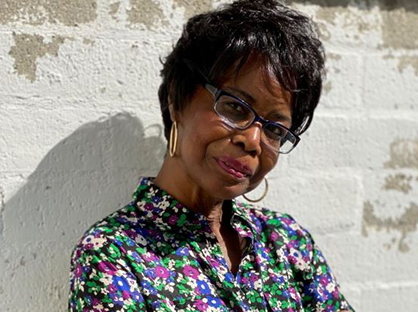It's becoming increasingly demanding to keep up with rapidly-changing recommendations and rules about staying safe during COVID-19. Those with visual impairments have faced disproportionate vulnerabilities. And now newly released data has shown that since the onset of the pandemic clinical depression within the low vision and blind community is being reported at nearly three times the level than the general population.
Vera Thompson, 69, Los Angeles, is among the visually impaired challenged daily by issues like social distancing. A paralegal by trade, Thompson was diagnosed with Glaucoma, a condition often accompanied by rapid vision loss. "For those with low vision or blind like me, social distancing is impossible when you are unable to see six feet in front of you," said Thompson.
While many businesses and public spaces have introduced new layouts or restrictions to try and limit the spread of the virus, these adjustments actually make places harder for visually impaired people to navigate, meaning they go out much less, often forgoing needed medical care and adding to feelings of isolation and despair.
"Everything was quickly becoming harder to see and driving to work was no longer an option. I lost my freedom and livelihood all at once," said Thompson. "I joined every Los Angeles low vision and blind support group and community program available; none were geared for older people suffering from vision loss later in life." Thompson missed being around technology and realized that getting back on her computer during the pandemic was important for her to stay informed, in touch, and healthy.
Thompson is among the growing number of those with visual impairments who have turned to Hadley.edu to help navigate life during the pandemic. Recently Hadley has experienced a surge in enrollment for workshops, podcasts, and discussion groups designed to keep the visually impaired connected to expert help during the pandemic, including new learning modules for those with vision loss on how to use Zoom, as well as how to access special low vision features on their cell phones, smart devices, and computers.
Through her own personal experience, Thompson was recruited by Hadley to serve a role in assisting other low vision individuals as part of a group of advisors chosen to provide input for the design and implementation of the new Hadley.edu, which takes a dramatically different approach to reach an audience that is becoming increasingly difficult to reach, primarily older adults facing vision loss. Built on many months of research and development work, the new platform is entirely based on the needs and wants of visually impaired adults to keep them connected, engaged, and informed.
"For me, the world during the pandemic is not so dark anymore, emotionally and otherwise," said Thompson. "I was honored to provide Hadley my input and contribute to the development of this vitally important resource for others with vision loss."
